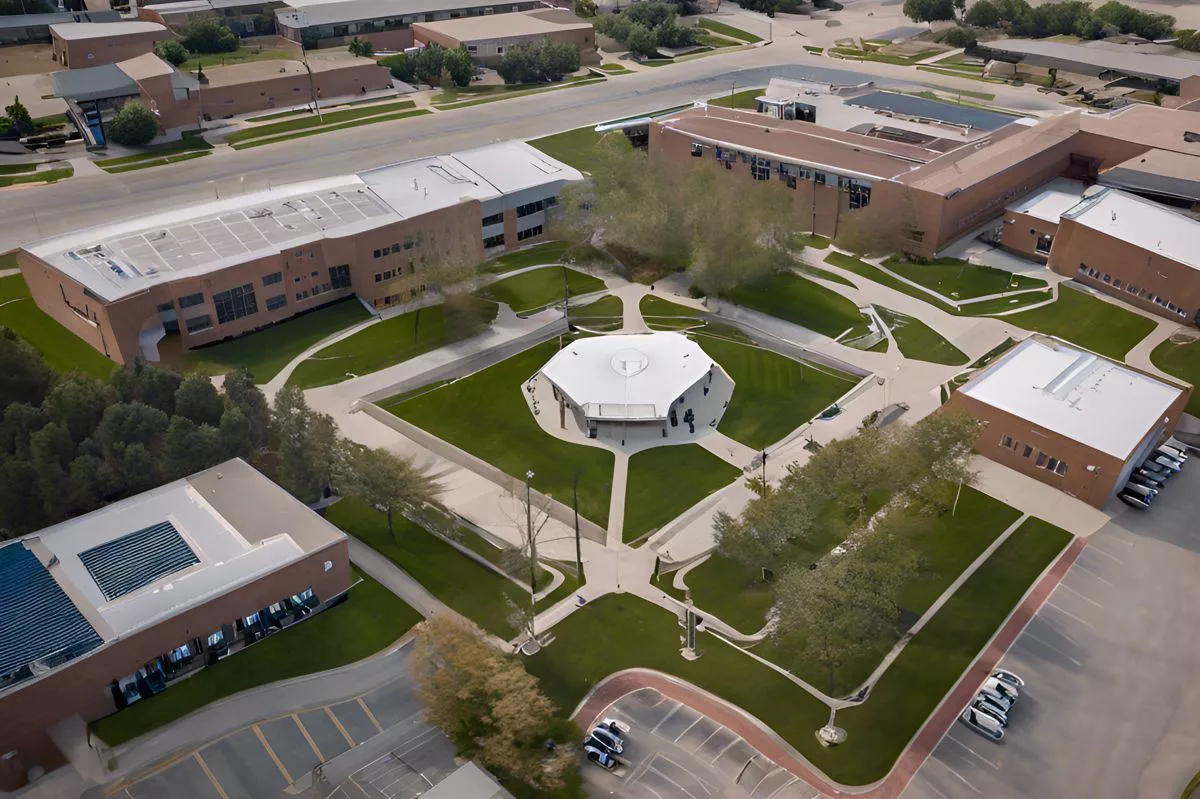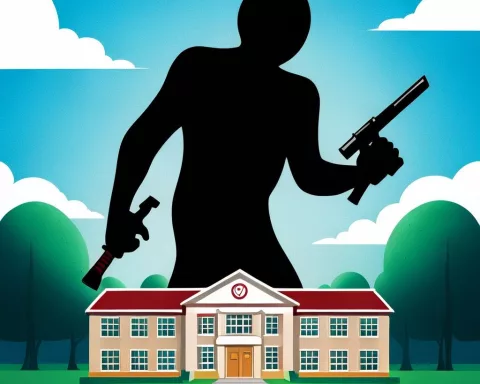The launch of the Balfour Campus for Gert Sibande TVET College marks a new era in accessible, high-quality education in South Africa. The ultra-modern facility is a symbol of the nation’s commitment to delivering the best to its young generations and overcoming past struggles in the TVET College sector. Its construction, worth approximately R150,000,000, offers diverse programs to meet the needs of an evolving economy, and it stands as a beacon of hope and a hub of opportunities for students in the Gert Sibande District.
A New Dawn in Education: The Launch of Balfour Campus. The recent unveiling of the Gert Sibande TVET College’s Balfour Campus marks an exciting stride in the educational field. The ultra-modern facility symbolizes the nation’s ongoing journey towards accessible, high-quality education and stands as a testament to the nation’s aspiration of delivering the best to its young generations.
A Significant Step Forward
The recent unveiling of the Gert Sibande TVET College’s Balfour Campus marks an exciting stride in the educational field. The ceremony, spearheaded by Minister Blade Nzimande, symbolizes a noteworthy move towards the democratization of education. In his keynote speech, Minister Nzimande accentuated the superb quality of the infrastructure delivered by his department. He confidently affirmed, “When my department pledges to provide infrastructure, we deliver top-tier facilities,” a proclamation that radiates steadfast commitment and purpose.
Without question, the ultra-modern facility is more than a mere architectural structure; it symbolizes the nation’s ongoing journey towards accessible, high-quality education. It stands as a testament to the nation’s aspiration of delivering the best to its young generations.
Overcoming Past Struggles and Strengthening TVET Colleges
The TVET College sector has grappled with challenges in the past due to the lack of a concrete infrastructure development plan. This resulted in systemic problems, including limited access to educational opportunities for young individuals, worsening the notorious NEET issue – the alarming number of people not participating in any form of education, employment, or training. To combat this, the Department of Higher Education and Training designed a detailed plan to transform the status and image of TVET Colleges.
This makeover, which goes beyond physical upgrades, forms part of a national strategy to make TVET Colleges more approachable and attractive to young people. The primary objective is to alter the often misguided notions associated with public TVET Colleges. This doesn’t undermine university education but highlights that a well-rounded skills development ecosystem cannot solely depend on conventional university systems.
Aligning with National Skills Development Strategies
In line with the National Skills Development Strategy, the rebranding of TVET colleges is designed to respond effectively to the sector, local, and national skill needs. As emphasized by the National Development Plan (NDP) and the White Paper for Post-School Education and Training, the aim is to produce 30,000 qualified artisans per year by 2030. Judging by our current production rate of 20,000 artisans per year, this is a feasible target.
Artisans hold significant importance, particularly considering current electricity issues and infrastructural challenges such as potholes. Hence, a sturdy workforce of qualified artisans is not just desirable; it’s essential. To back this ambition, the Department has invested over R2.880 billion in the development and renovation of sixteen new TVET campuses, with ten already in operation.
Balfour Campus: A Beacon of Hope and a Hub of Opportunities
On the docket next is the Balfour Campus, the construction of which was worth approximately R150,000,000. This modern campus, which offers diverse programmes, aims to meet the needs of our evolving economy, spanning sectors from engineering and IT to healthcare and hospitality.
In its preliminary days in 2014, the Balfour campus delivered Level 2 Civil Engineering in the buildings of Hoer and Laerskool Balfour. However, the new campus consists of three buildings: an administrative block, a theoretical building with computer labs and classrooms, and an engineering block with workshops and smaller skills venues.
Boosting the potential of this new campus, the Fibre Processing and Manufacturing SETA (FP&M) has pledged R11,8 million to the Gert Sibande TVET college. This generous investment will cover various costs, including the launch sponsorship, bursaries, learner placement, skills, and learnership in furniture making.
Minister Nzimande expressed his gratitude towards various entities, including provincial and local governments, SETAs, and NSFAS, and underscored the need to preserve the facility. “This new campus is a property of the people of the Gert Sibande District, and I urge you all to take good care of this new facility,” he said. The inception of this campus signifies a pivotal move towards increasing access to educational and training opportunities, thus enhancing skills development and local economic growth in the Gert Sibande District.
In its magnificence and the opportunities it presents, the Balfour Campus symbolizes much more than a mere architectural structure. It is a beacon of hope, a testament to the nation’s commitment to education, and the epitome of the vision to foster an inclusive, empowering, and vibrant educational environment. It undoubtedly marks a proud moment in the nation’s quest towards democratizing education and expanding opportunities for its citizens.
1. What is the Balfour Campus?
The Balfour Campus is a modern facility that offers diverse programs to meet the needs of an evolving economy in the Gert Sibande District of South Africa. It is a symbol of the nation’s commitment to delivering accessible, high-quality education to its young generations.
2. What is the significance of the launch of Balfour Campus?
The launch of Balfour Campus marks a significant stride in the educational field in South Africa. It is a noteworthy move towards the democratization of education and overcoming past struggles in the TVET College sector.
3. What are the challenges that the TVET College sector has faced in the past?
The TVET College sector has grappled with challenges in the past due to the lack of a concrete infrastructure development plan. This resulted in systemic problems, including limited access to educational opportunities for young individuals, worsening the notorious NEET issue.
4. What is the National Skills Development Strategy, and how does it align with Balfour Campus?
The National Skills Development Strategy aims to make TVET Colleges more approachable and attractive to young people and respond effectively to the sector, local, and national skill needs. Balfour Campus aligns with this strategy by offering diverse programs to meet the needs of an evolving economy.
5. What opportunities does Balfour Campus offer?
Balfour Campus offers diverse programs spanning sectors from engineering and IT to healthcare and hospitality. The Fibre Processing and Manufacturing SETA (FP&M) has pledged R11,8 million to the Gert Sibande TVET college, covering various costs, including the launch sponsorship, bursaries, learner placement, skills, and learnership in furniture making.
6. What does the Balfour Campus symbolize?
In its magnificence and the opportunities it presents, the Balfour Campus symbolizes much more than a mere architectural structure. It is a beacon of hope, a testament to the nation’s commitment to education, and the epitome of the vision to foster an inclusive, empowering, and vibrant educational environment.












